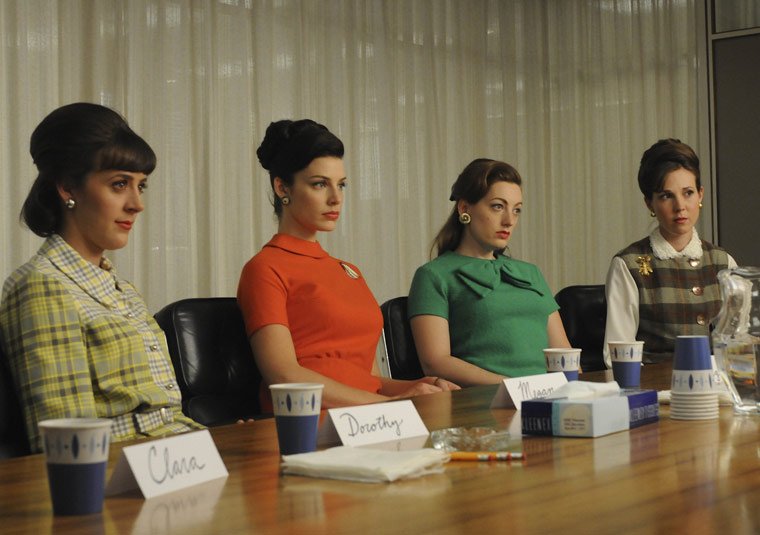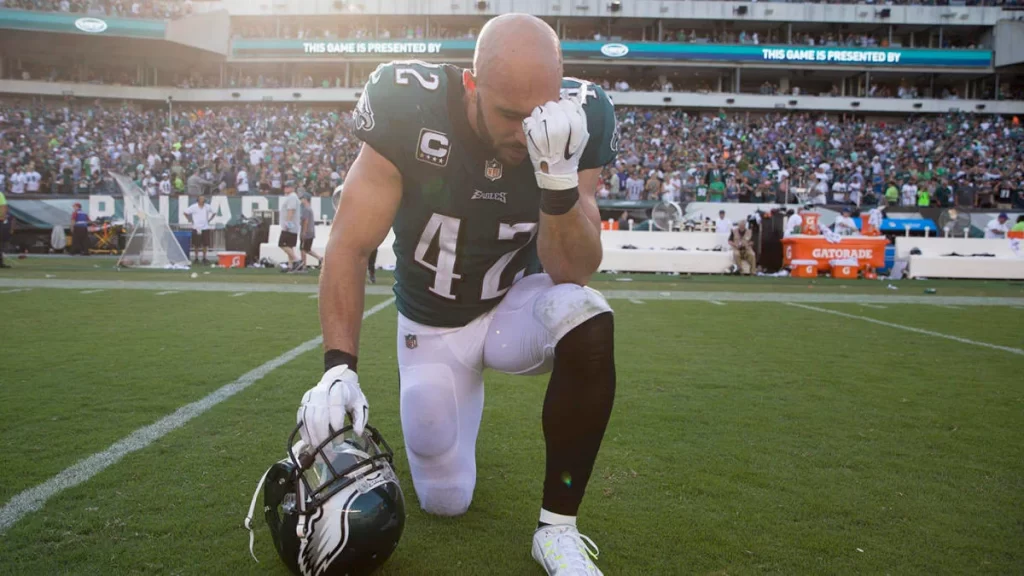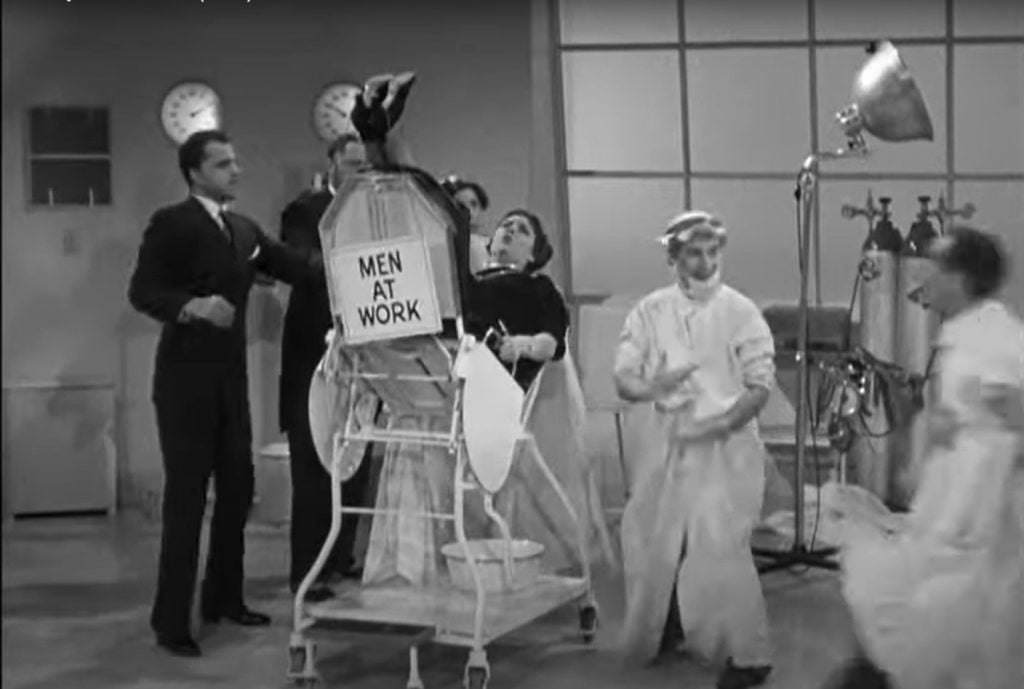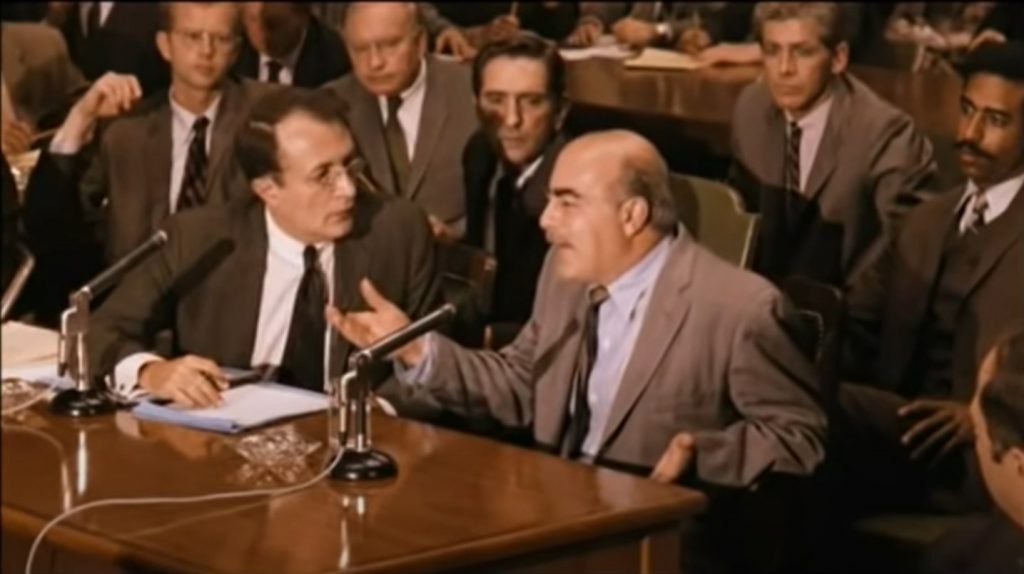Springtime

Finally, have a Happy Easter, Happy Passover, and Ramadan. It is a lovely time to be in Eastern Pennsylvania as all our trees are flowering and it is really very pretty here for a while.

Finally, have a Happy Easter, Happy Passover, and Ramadan. It is a lovely time to be in Eastern Pennsylvania as all our trees are flowering and it is really very pretty here for a while.

Nobody did focus groups better than Mad Men
Over the course of a typical year, I will conduct a focus group on one or two cases. The cost is usually minimal in relation to the overall case value. The purpose of running a focus group is usually to evaluate specific case issues and get a feel for how an impartial jury feels on seeing your case on first impression. For various reasons, using focus groups for determining case values is not particularly reliable.
A focus group collects panelists who reflect the typical makeup of your expected trial jury in the county where your case will be tried. We all prefer a representative sample of the educational level, racial makeup, political leanings etc.
Usually, I will prepare a reduced presentation of exhibits and an outline of the case. Since the defense is not present, I try to deliver a middle of the road presentation. Think about a just the facts ma’am, Sgt. Friday type presentation. The goal is not to argue one side or another. Rather, the goal is to ferret out how jurors feel about issues in your case that are problematic or will make or break your case.
Often, nuggets of information come out of focus groups that help me either negotiate a settlement or grab onto important pieces of information that did not seem important to me previously in the case. Lawyers will often test out case themes or use a focus group to test a particular problem. Let’s say you are in a medical malpractice case and your pregnant client lost her baby due to medical decision-making. Does it matter that the mom was a smoker? Does it matter that this was the mom’s first child or fourth? Does it matter that she missed a pre-natal appointment? All of these are examples of issues that a jury may or may not care about. How they view the issues is going to be important in the trial.

I am always amazed at how some of the most notorious white collar thieves went astray. Girardi negotiated a $53-million settlement in 2013 for a young burn victim named Ruigomez, but told his parents the agreed amount was only about $7.2 million, according to the indictment. Bernie Madoff stole billions of dollars running a non-existent trading operation.
Both of these men were highly skilled marketers and salespeople. Why they went astray is hard to fathom, but that is not my focus here. Rather, each of these guys was able to convince people, some educated and some not, to trust them on a scale rarely seen. Madoff did so by convincing people that it was a unique secretive privilege to be a client of his. Girardi preyed on the less educated accepting his word without question. In another context, both men would have been super successful as large parts of the business world are dependent upon truly great marketers and salespeople.
If you were trying to market a successful business or conduct networking for a law firm, it might be worth it to spend a moment to study what these two were doing before things went awry. Having looked at both their stories, it is apparent that unlike many of us who are working lawyers, meaning working at our lawyer jobs, both of these men were 100% all in on marketing themselves or their operations.
Both were exquisitely focused on exactly who their best sources of revenue were and how to keep that revenue running. At some point, the machine runs on its own, but if you are running a huge ponzi scheme, it seems you better be out beating the bushes all the time for business. And so, that seems to be the takeaway from the thief marketing playbook. Better be closing all the time. Always. And, all the time.

There is a current recall on eye drops and eye ointments manufactured by Global Pharma Healthcare Private Limited, which is an Indian manufacturing company. Their over the counter eye products were detected to have bacterial infection and were intended to be sterile. So, if you use these products, you may be directly dropping harmful bacteria into your eye. Bad, huh? This is evidence of a manufacturing problem. However, without the FDA’s involvement and a resulting voluntary recall, infection cases are very hard to prove either as medical malpractice or as product liability. There are several reasons for this. The claim here is that the manufacturer’s procedures to ensure sterility failed and bacteria entered the drops before they were sealed and shipped to the US.
Unlike cuts to the skin or inhaled bacterial infections, the eye is very sensitive to bacterial infections. What may initially look like pink eye or conjunctivitis can rapidly lead to degeneration of the retina or delicate structures in the eye. While doctors can infuse antibiotics directly into the eye, the structures of the eye can permanently degenerate because you have a lot of bacteria in a small, enclosed space with limited circulation. So, infusing bacteria into your eye is bad and can and has already led to reports of blindness.
In general, however, if you develop an infection following surgery, that is a known complication of surgery. If you are not diagnosed with an infection and it gets worse, it is always very difficult to determine who was at fault for the infection and any interaction with the general public makes proving a case impossible. In the nursing home context during covid, a number of families contacted me to evaluate the possibility of bring cases against nursing homes, but none of them had viable cases because covid was spreading so rapidly in an immune compromised population. It would never be clear to what extent the nursing home was to blame, if at all.
Every now and then, an infection case is viable, but only if the patient dies. So, for example, you go to an urgent care complaining of a cold and chest pain. You are told that it’s just a virus and you are sent home. Or, you are a college student with a head cold and you are sent home. If the patient, you, ends up dying of pneumonia or bacterial meningitis, then blood work would likely have found an elevated white count and the urgent care doctors should have notified you to either return or prescribed antibiotics asap. Most likely antibiotics will fix bacterial infections. Most infections are viral and not bacterial. But, the failure to rule out or exclude the possibility of a bacterial infection is often evidence of malpractice.

Recently, I took an extraordinary step that I don’t usually take. I am in the middle of a case involving three deaths. Through researching that case, I came across reports of another similar case in the area. I did not know the deceased’s family and ended up contacting them through a letter to which they responded. It ended up that they did not have a case that I wanted to pursue, but there are certain rules about how we as personal injury lawyers may pursue cases.
While we are allowed to send old-fashioned letters through the mail inquiring as to the need for representations, we cannot pay non-lawyers to hunt down cases for us. Second, we cannot call people who have just been in an accident and ask to be their lawyer. There is supposed to be sufficient time between the traumatic event and the solicitation to allay the upset of the trauma. Beyond that, there is a big gray area. If you want to read a great lawyer book called The Litigators, you will read about the Bhopal Union Carbide disaster and the flood of personal injury lawyers who jumped on airplanes to India with blank retainer forms to sign up clients. There is also the old commercial where a city bus crashes on a rainy day in front of a personal injury office and the lawyer’s dreary day turns sunny.
I was recently solicited by a company offering to provide me with signed retainer agreements, meaning that they had signed up clients with verified cases and all I had to do was compensate them for their “marketing” efforts. No thanks! That is over the line to me, but I could be wrong. Lawyers paying for leads often get in trouble with the disciplinary board when they compensate non-lawyers for cases.
When I was just starting out, I had a case referred to me by a local tow truck driver. He said he usually got paid $100 per lead or tip. I declined. Nevertheless, the driver’s boss liked me and told the client to call me. The client called me and I took and pursued the case successfully. However, when I went to sign the client up at their home, another lawyer had already been there and told them that they were a represented Neuwirth Law Office and needed some papers signed. I called and yelled at the other law firm and I ended up with the case. Nevertheless, if you would like to get in trouble, paying tow truck drivers is a good way to do it because they are often in trouble and are more than willing to turn over a random lawyer to save themselves.

Chris Maragos was a special teams player for the Eagles. He recently won a $40 million dollar verdict in Philadelphia against Rothman Institute in which he claimed that their failure to properly evaluate a meniscus tear in his knee cost him years of football earnings. His lost earnings made the number far higher than any other individual would normally see.
Lost earnings are very hard to prove for many people. If you are W-2 employee, they are fairly straightforward. Many people these days are not W-2 employees and it is very, very hard to prove lost earnings in those situations. I once had a client very mad at me because they felt that their real estate commission income was not fairly valued in a settlement conference. The client had earned about $75,000 per year in commissions as a realtor. But, the case occurred in 2010, in the middle of a terrible real estate downturn, when no houses were selling. It was very hard to justify a lost earnings value in that case, but the client definitely had lost earnings. Whether we could prove causation, or whether the earnings loss was caused by her injury was very problematic. Eventually, the client was pissed off, but accepted the settlement offered. I have not heard from them since then suggesting that they still felt aggrieved by their lost earnings.

What do Ukraine and Taiwan have to do with each other? Well, Xi Jinping has stated that he would like his military ready to be at war with Taiwan by 2026. So, the lesson China is learning is that it will take a bit to invade a well-armed motivated neighbor.
I studied a lot of history as a college student and the study of war was part of that education. The Russians are notoriously stubborn and this war will continue for a while.
It does give both NATO and Russia and China/North Korea/Iran an opportunity for everyone to test our their alliances and their military hardware. To some extent, this is good for our military readiness in that we get to test out our missiles, our battlefield effectiveness etc. Sadly, we do that by killing a lot of unmotivated Russian troops, while helping out the Ukrainians.
Despite my contempt for the current Republican party and its mouthpiece, Fox News, it is really shocking to see any republicans leaning towards taking Russia’s side in any aspect of this war. We have defended Israel as the only friendly democracy through thick and thin and we should absolutely defend Ukraine. The notion that Russia is disposed positively towards us could not be more wrong-headed based upon history. That Trump was actively seeking to do Putin’s bidding and seeking to undermine Ukraine is unsurprising. But, to see the Republican party lining up to restrict aid to Ukraine or mimicking Russian talking points is really shocking. We are on the right side in helping the Ukrainians.
There is a great old and remarkably short book called Groupthink: Psychological Studies of Policy Decisions and Fiascoes about poor decision-making by leaders who are isolated and surrounded by yes-men or sycophants. The Bay of Pigs under Kennedy is one example. Trump could fall into this category on any number of decisions, but Putin is probably a glaring example to warlords everywhere. Groupthink basically posited that failing to surround yourself with differing viewpoints was guaranteeing a failure to see reality. And, failing to see reality has dire consequences at the international level, but also at the level of our everyday lives.
So, back to Philadelphia for a second. The City has a mayoral primary coming up on May 16, 2023. There are a lot of candidates running. The City needs new leadership, new guidance, and a new approach to woo business, employees, and visitors back to the City. Going back to the old machine politics candidates will only prolong the City’s problems. Something really needs to be done about crime, Kensington, and education. I cannot vote as I am not a resident, but I am hoping for positive change.

The key question in these cases is what was the standard of care at the time of the alleged negligence. Unlike in law, where we have years of cases telling us what the general standards are, in medicine, there are few corollaries. If you are an OB-GYN, there is the American College of Gynecologists (ACOG) that outlines a lot of care protocols. But, for a lot of the other areas of medicine, the standard of care is usually what an expert or experienced doctor says it is. For example, if you are performing surgery and cut a ureter by accident, is that below the standard of care? Probably not. You may be harming someone because you affect their urination or cause a significant infection etc. But, is it below the standard? Probably not because it is in the surgical field you were operating in and a nearby structure. How about cutting something else? Maybe you cut a nerve that cannot be repaired? That may be below the standard of care if you are operating in an area with several significant nerve endings. You are not supposed to cut structures that look like nerves, which are generally white fibers, as opposed to ureters which are less distinct. As you can see, judgment call cases don’t make great malpractice cases if they are subject to disagreement over what the standard is or was.
The stronger cases are ones where what the doctor is saying simply cannot possibly be true or accurate. If a CT scan result shows that there is a possible bleeding artery in the abdomen, every doctor who sees that needs to respond immediately. When doctors say that they were not aware of that CT study, that is a problem for their defense. The immediate next question is well, had you known, would you have acted differently and would the patient have gotten more appropriate care sooner? Often, this is a critical point. So, I am always more interested in the cases where there is a clear miss or omission or something objective than the judgment cases.
For example, there are a lot of failed back surgeries. They fail because back surgery is still not easy or predictably successful in all patients. Basically, if you have a fusion of your spine, you are going to end up with pain elsewhere because your body has some issues with your spine. It does not usually mean the doctor made an error. In fact, there is a condition called Failed Back Surgery Syndrome, which usually means that the patient has had a bunch of back surgeries without resolution of their pain. Needless to say, these are not good cases in which to sue your surgeon.

The Schuylkill Expressway is very busy Wednesday mornings. It seems that larger employers are forcing people back to work in the mid-week and employees are resisting that on Mondays and Fridays. As a result, 76 is back to being pretty packed with cars on Wednesdays. Office occupancy figures are still around 48% on the busiest days, which is still well below 90% or more pre-pandemic. Miles driven have recovered to pre-pandemic levels on a national scale, but around Philadelphia it seems that miles driven must still be fairly low, as there are plenty of suburban professionals working from home.
The net result of this for personal injury lawyers, insurance defense lawyers, and insurance companies and their employees is that claims are down by 33% or so. This is bad for business on all sides. At the same time, with the normalization of depositions conducted by zoom, the practice has become far more efficient in terms of hours used. We no longer have to go to Court except for trial. I used to go to Court to sit at a calendar call for frivolous motions in discovery court that I knew I would win. That would waste three to four hours of a day, accomplish nothing, and get me a $40 parking charge. That is now gone. Judge Anders in Philly conducts discovery court by zoom and the same things happen and get done and I am sitting in my office or in my basement. It’s a huge change.
The job market continues to be very favorable for lawyers, accountants and other professionals. If you were willing to come to the office five days a week as a CPA, I could find you five jobs in the blink of an eye. If you have three years’ experience as a lawyer, I could probably find you ten jobs to interview for. And, salaries are up. So, it’s a great time to be looking for a job.
I still find that it is challenging to get people out of their house to have a business lunch, to catch up and make new contacts. That is just the way of things now. It may take some time to grow out of this.

Former employee Frank Pantangelli testifies against former employer Michael Corleone
Should you represent your business’ former employee? From the plaintiff’s perspective, I am always happiest to see a business’ former employee testifying at a deposition without counsel. I am also puzzled by the failure of a former employer to represent the witness. There are multiple reasons why a business may not want to represent a former employee including bad blood, the expense of preparing and representing them, potential conflicts of interest etc. However, absent these situations, failing to represent a former employee raises a lot of red flags and makes the witness ripe to be turned against the former company.
Former employees know where the bodies are buried, are not shy about sharing gossip, bad practices, things that fell through the cracks etc. Former employees are also remarkably willing to dump on the employer, regardless of whether they are telling the truth. There is very little risk to a former employee telling the truth about an employer and if there is no counsel there to temper their testimony or at least be aware of what is coming, it is a recipe for a plaintiff’s lawyer’s field day.
Years ago, I represented medical providers in malpractice lawsuits. It was our practice to represent all former employees, for free, no matter how much it cost, what it would require etc. As soon as a subpoena was received by a former employee, who was a non-party witness, we would immediately seek to be appointed as counsel by the carrier. It was an important step and one that usually avoided problems.